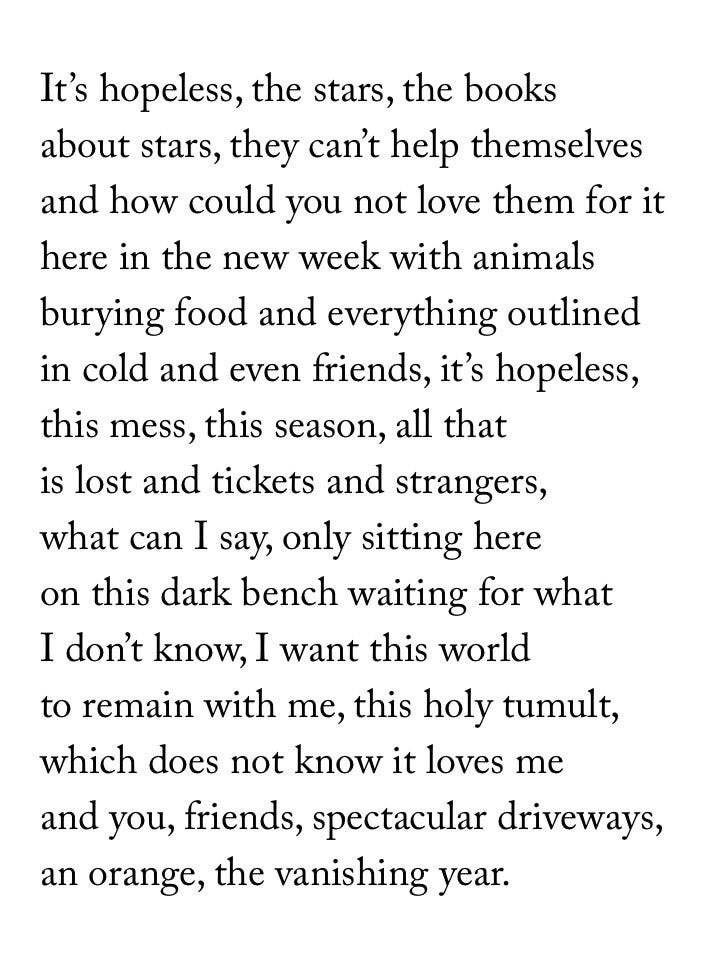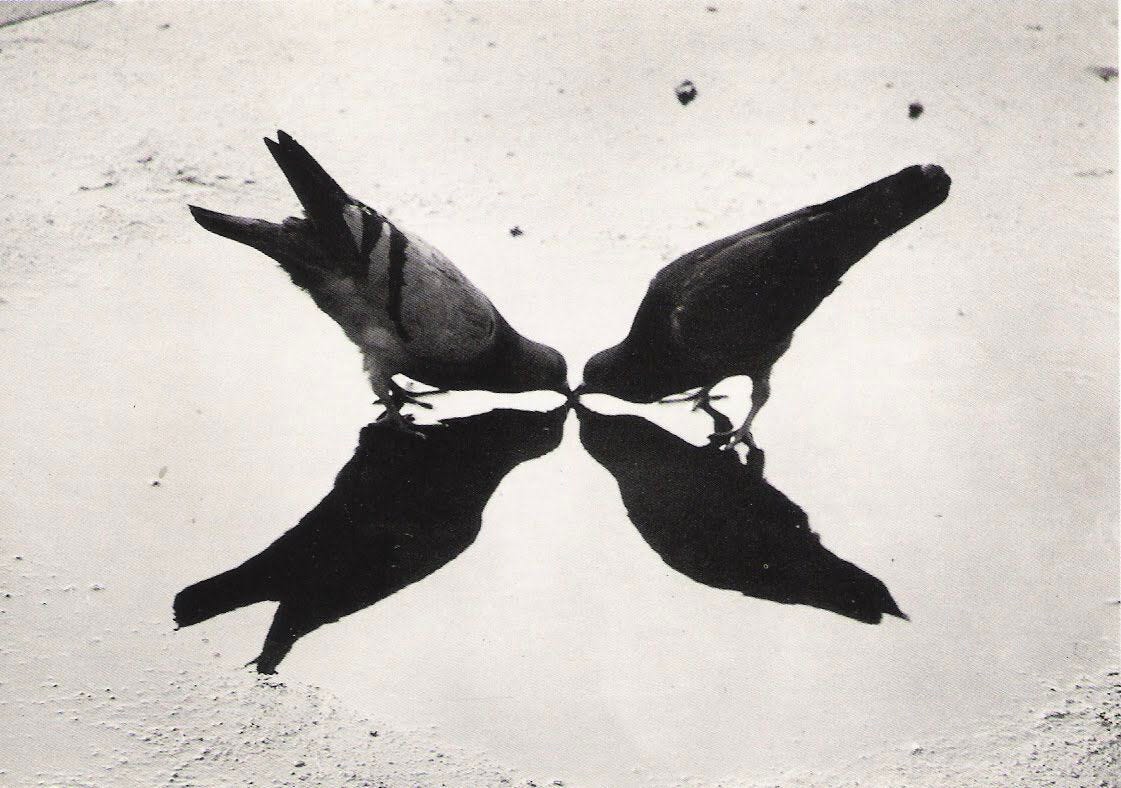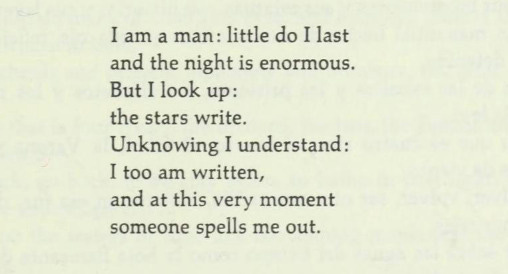poetry pocket: advent, heather christle
i don't know, i want this world to remain with me: this holy tumult which does not know it loves me.
dear little voice,
this is a poem for sitting here on a dark bench waiting for what you do not know.
this is a poem for a new year.
this is a poem for what makes you hopeless.
And what shall we make ourselves from today? A memory, a seedling, a word? What can we hold up to the light and find despair has not yet touched?
- Heather Christle
i know that it is what is hopeless that is beautiful. i can discern this because it is in front of the things i love that i am most often hopeless: like jetties and apples, long walks in the afternoon and the creak of rain and every different word for river. to put it otherwise: in the face of everything that does not know it loves me, or that doesn’t care, and so owes me nothing: no permanence, no stability, and certainly not any new arrival—just the uncomplicated and undiscriminating promise that it will leave me, too, very soon, and into what Mary Reufle called: “the end of time, which is also the end of Poetry (and wheat and evil and insects and love).”
little do we last and the world is enormous. this we know.
above and beneath and amid all of this; the tucked pine bark and thunder god vines, supermarket shelves, first loves and last cries: you will move through. you will love. your feet will become sore. it will become dusk. you will grow old.
it is the end of another year and i am thinking about entropy. it is the end of another year and i am thinking about life. most of all, like always, i am thinking about words:
i see the blessing of the rain and I lift my face to it. Kim Addonizio writes: I see the blessing of the rain and I lift my face to it.
i often pride myself on needing no certainty; no assured particularity or stable future. only that what unfolds before me is a happy thing, and a forever thing. this is of course, an absurd request, in revolt against the very basic chemistry of our human lives: against entropy.
Octavio Paz, ‘Brotherhood’, A Tree Within (trans. Eliot Weinberger)
Claudius Rodolf built the word entropy from the Ancient Greek tropē, or: transformation. i am sure he smiled, too, when looking down at his parchment on some pale, moon-burnt evening, noticing the similarities between its echo and that of the english word energy.
we are creatures of energy and time perpetually baring witness to the gradual undoing of our being: with the thermochemical collapse of our lives, our bodies, and our world into disorder and uncertainty— and still we are so lovely and so foolish so as to ask that the whole dance might make an exception or two in the case of our singular lives— or that, at the very least, we may be in charge of it.
this is the governing rule of our time: disorder. the dissolution of clarity, unknowns, the inevitable undoing of our every moment: that, as Edna St. Vincent Millay perfectly wrote, all of us, the “lovers and thinkers” will become “one with the dull, the indiscriminate dust.”
meanwhile, the grass still waivers. the Moon rises, and the sun does too. children are read stories and somewhere, against all odds, strangers fall in love. light moves on clear water. cruelty occurs on unlikely roads but grace does also. that is to say: we hold one another fast against entropy: against the departure of everything we know and the presence of everything we do know know that will follow it.
life insists on living— and we do too, even as uncertainty claims everything, and we grapple with another year and another precipice of unknowable endings and unspeakable returns. we continue to insist on the precious times between: when things are singular, simple and radiant— and we love, again, the world. and so we remain hopeless before it: this holy tumult which does not know it loves us.
it is breathtaking: this extinction of ours.
there is a wonderful passage in Kathryn Schulz’s Losing Streak:
Yet that loss, too—our own ultimate unbeing—is dwarfed by the grander scheme. When we are experiencing it, loss often feels like an anomaly, a disruption in the usual order of things. In fact, though, it is the usual order of things. Entropy, mortality, extinction: the entire plan of the universe consists of losing, and life amounts to a reverse savings account in which we are eventually robbed of everything. Our dreams and plans and jobs and knees and backs and memories, the childhood friend, the husband of fifty years, the father of forever, the keys to the house, the keys to the car, the keys to the kingdom, the kingdom itself: sooner or later, all of it drifts into the Valley of Lost Things.
There’s precious little solace for this, and zero redress; we will lose everything we love in the end. But why should that matter so much? By definition, we do not live in the end: we live all along the way. The smitten lovers who marvel every day at the miracle of having met each other are right; it is finding that is astonishing. You meet a stranger passing through your town and know within days you will marry her. You lose your job at fifty-five and shock yourself by finding a new calling ten years later. You have a thought and find the words. You face a crisis and find your courage.
All of this is made more precious, not less, by its impermanence. No matter what goes missing, the wallet or the father, the lessons are the same. Disappearance reminds us to notice, transience to cherish, fragility to defend. Loss is a kind of external conscience, urging us to make better use of our finite days. As Whitman knew, our brief crossing is best spent attending to all that we see: honoring what we find noble, denouncing what we cannot abide, recognizing that we are inseparably connected to all of it, including what is not yet upon us, including what is already gone. We are here to keep watch, not to keep.
without entropy, there would be no time, and no departure.
no use for hopelessness.
no use for hope.
what are you asking for when you ask to be sure of what you do not know? you are not sure, because you do not know it.
strange and lovely: how the only steady impulse you have ever had is to keep all of this with you; the creak of floorboards and the incomparable bliss of sun, the haze of the Moon on a lonely walk home and every hand tangled in your own. to simply continue the dance.
and maybe for a moment you can humour the idea that you need a lot less than you have: for example, maybe, just some light and the world it falls on top of. and how as of now you are older than you’ll ever be and soon that will be destroyed also and that this is good because it makes you afraid and you are afraid because you know it is brief and it is precious.
and how what distinguishes your face from any of this at all— say, a tree’s— is its total assurance in all of this: as in, that tree who is grounded there knows that it is grounded. you, on the other hand, are the noisy one walking around trying to talk about it, to ask for directions, consolation, certainty.
these are the things that make me hopeless. and in these moments i know that loving the world means loving what cannot love me back, or what does not know it does.
not in the sense that it is cruel, but in the sense that it is generous.
after all: what more could you ask for tham to be standing right here, right now, begging the whole world as it is is to remain with you: this holy tumult, friends, spectacular driverways, an orange, the vanishing year.
i hope you don’t and and do not need to look for any explanation.
i hope you know that you neither can nor should nor ever understand what it all means.
it’s hopeless, after all. and how can you not love it for that?
love,
ars poetica
little voice: it is my belief that Poetry is a human birthright. my work will always be completely free, and takes considerable Time and Love to give to you several days a week. if it has brought you Joy, consider buying me a book so that I may continue to tuck Words in your pocket:













I am so glad I found you.
brilliant... !
believe i have said this to you before
for other words you wrote
a brilliant way you have